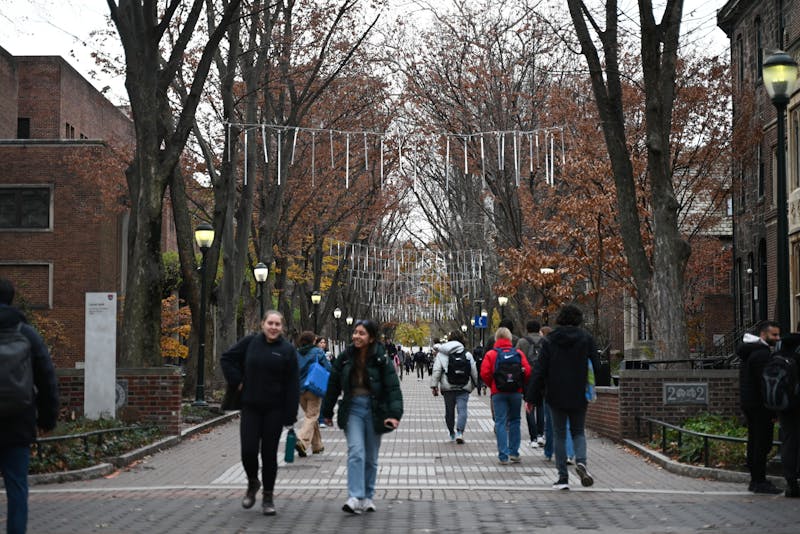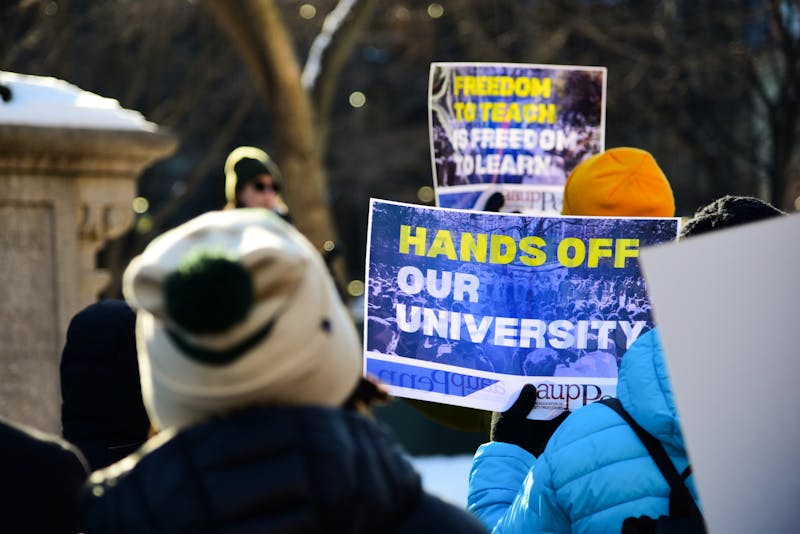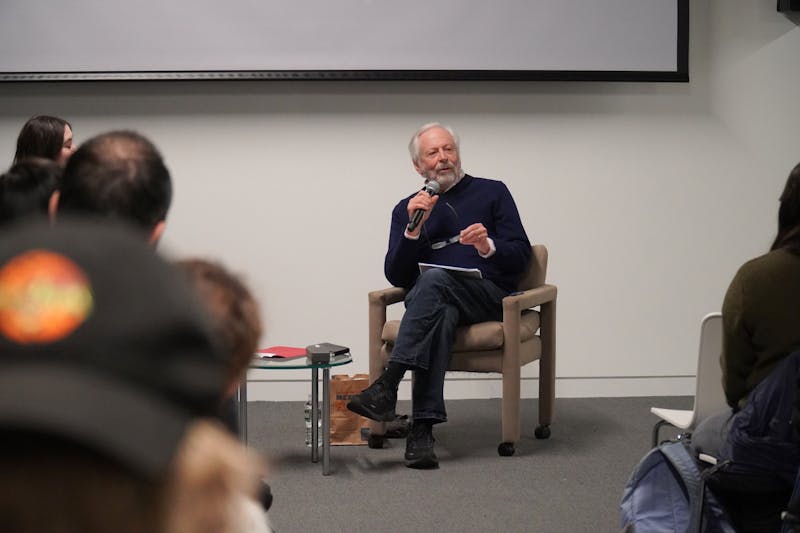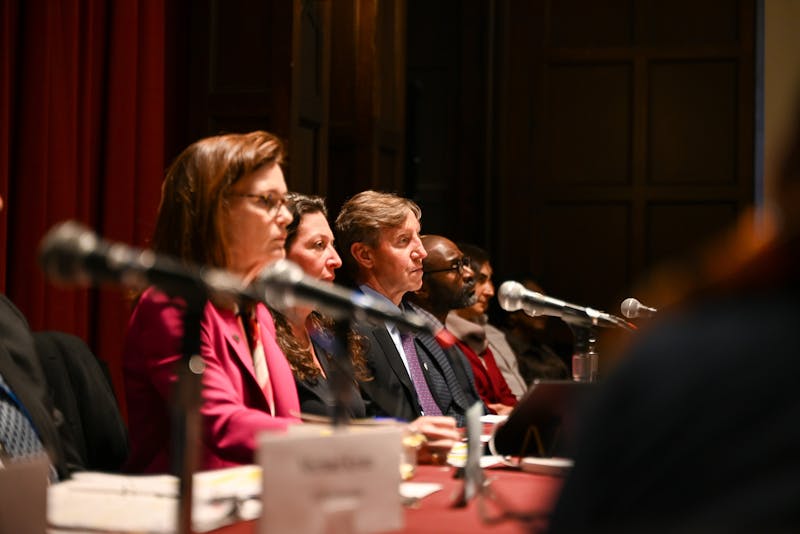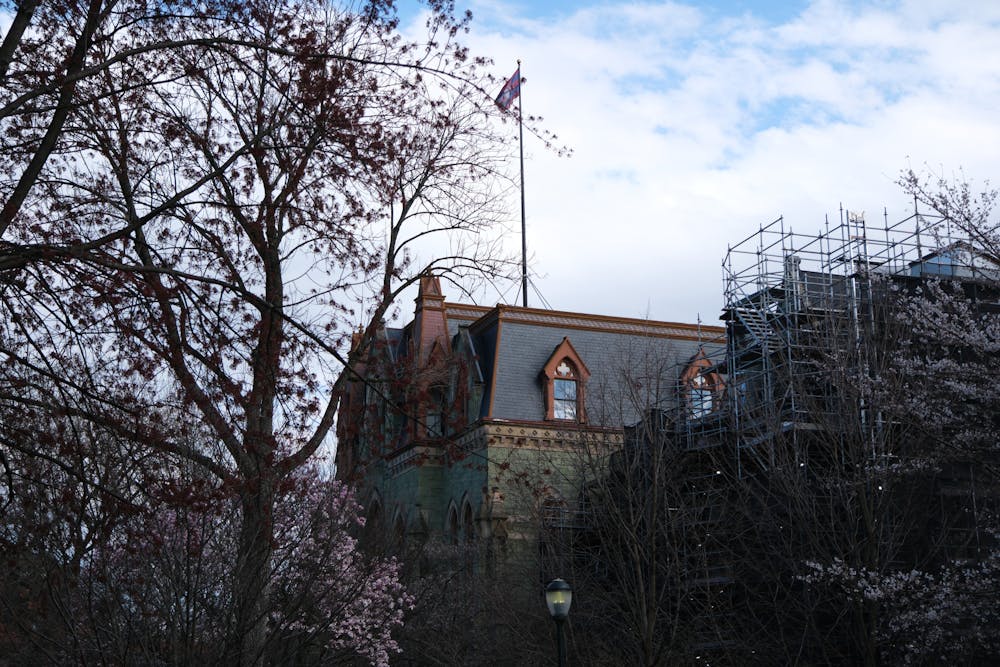
A group of Penn alumni is calling on the University to better protect free speech on campus — including by adopting a policy of institutional neutrality.
The group, which is called the Penn Alumni Free Speech Alliance, was formed last winter in response to the controversies surrounding free speech on campus. The alumni are calling on the Penn administration “to adopt a public commitment to free speech” and commit to "freedom of speech and academic thought," including for perspectives they disagree with.
A University spokesperson declined to comment on the group's formation.
PAFSA’s first meeting on March 7 of this year was a hour-long virtual discussion on free speech, which included a kick-off speech from 2008 College graduate and PAFSA founder Alexander McCobin. Economics professor Jesús Fernández-Villaverde and President and CEO of the Foundation for Individual Rights and Expression Greg Lukianoff also spoke.
“We need to have a robust conversation and provide a space where alumni can come together in support for principles of free speech back at Penn,” McCobin said in his opening remarks. "The point of this call is not only to raise awareness and have this conversation, [but] for this to be an invitation for all of you, to help us build the Penn Alumni Free Speech Alliance.”
Lukianoff gave a presentation on free speech statistics that relate to Penn, and spoke about the status of free speech at Universities across the country. Fernández-Villaverde spoke about his experience as a professor at Penn — and how he has noticed a shift in his classroom environment since he started teaching at the University in 2001.
In an interview with The Daily Pennsylvanian, Fernández-Villaverde suggested that Penn follow First Amendment case law when it comes to free speech on campus, and that the University follow a policy of institutional neutrality.
“I think that as we start searching for new leadership at the University, I would like to ask the new candidates, do you think [free speech] is important? And do you think this should be a priority for the new leadership?” Fernández-Villaverde added. “If we get a new leadership that is really very committed to free speech, that will have enormous benefits for everyone."
Law professor Amy Wax, who is currently appealing sanctions levied by the University against her, also attended the meeting. Wax discussed her case on the call, saying that if people want to help her, they can “tell the administration to drop the case against me.”
Wax added that the case should have never been brought against her as she “dares to challenge the received wisdom openly about [DEI] and wokeness on campus.”
McCobin and 2010 Wharton MBA graduate Marina Glazman, who also helped start the alliance, spoke to the DP about the formation of the group.
McCobin spoke about his time as an undergraduate student at Penn, and how he felt as though there was a common understanding across campus about the importance of free speech.
“It feels like over the last few years, something has changed where that common commitment to free speech as a principle has eroded, which is both sad and frightening at the same time,” McCobin added.
He hopes that in addition to advocating for free speech on Penn’s campus, the group can “model what free speech looks like” for other campus groups.
“We've already encountered challenges on campus where students feel like they need to self censor, or where they are actively trying to censor other opinions, because they haven't seen what a robust marketplace of ideas with meaningful debate,” McCobin said.
Glazman is hopeful that the group will be able to enact change on campus.
“Every change in any culture or policy in history responds to something. Part of the challenge is that a lot of alumni have been disengaged for a while,” Glazman said. “But you know, when alumni really do get involved in and care about something, that is when change happens,” she added.
Both Glazman and McCobin hope that more people get involved with the mission.
“The reason to join or just sign up for the listserv is to find out what is going on and find out who else is actively engaged in this issue on campus, to know you're not alone, to know that change is is coming about, and be able to get involved when the right opportunity comes along,” McCobin said.
The group will host their next event with Victoria Coates, who served as the Deputy National Security Advisor under 1968 Wharton graduate Donald Trump, on April 25. Coates — who received her PhD in art history from Penn — will discuss academic freedom and engage in a conversation about issues of national security.
The Daily Pennsylvanian is an independent, student-run newspaper. Please consider making a donation to support the coverage that shapes the University. Your generosity ensures a future of strong journalism at Penn.
Donate







